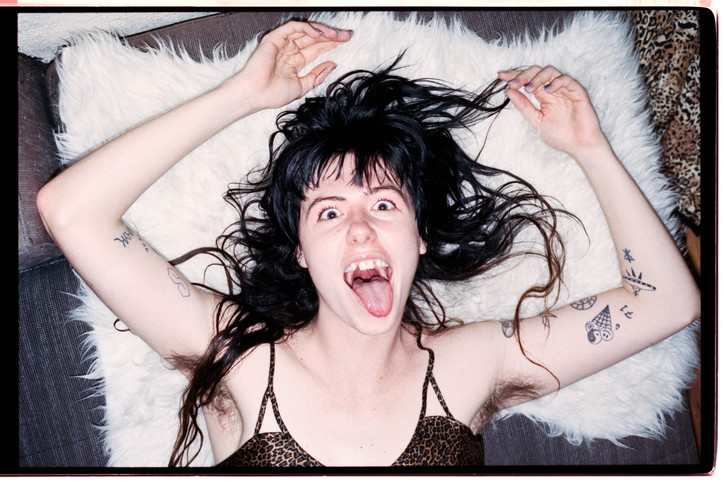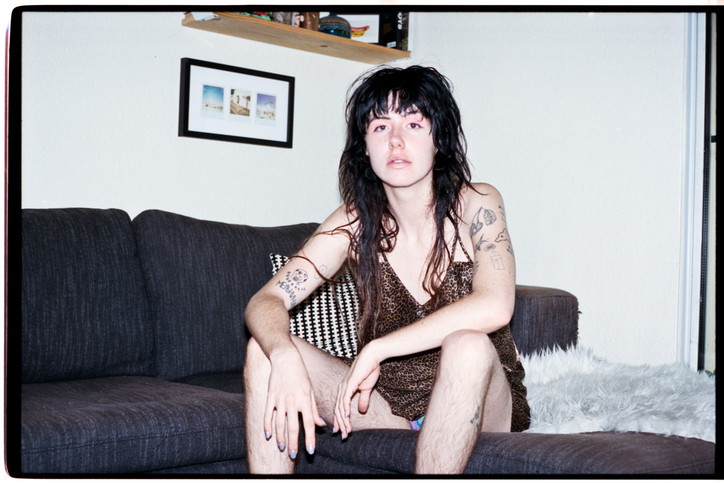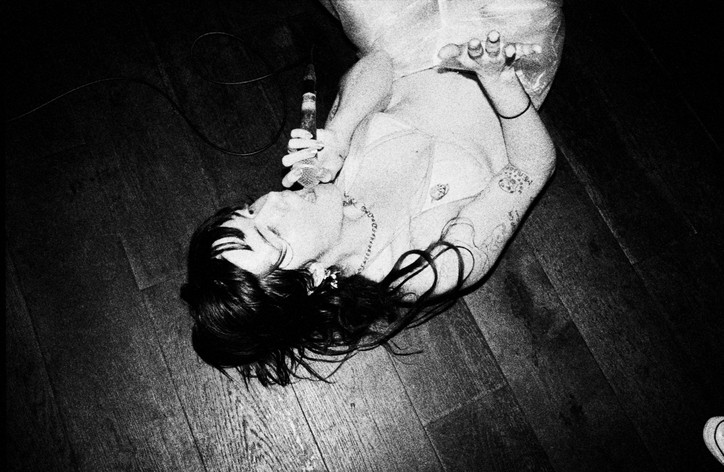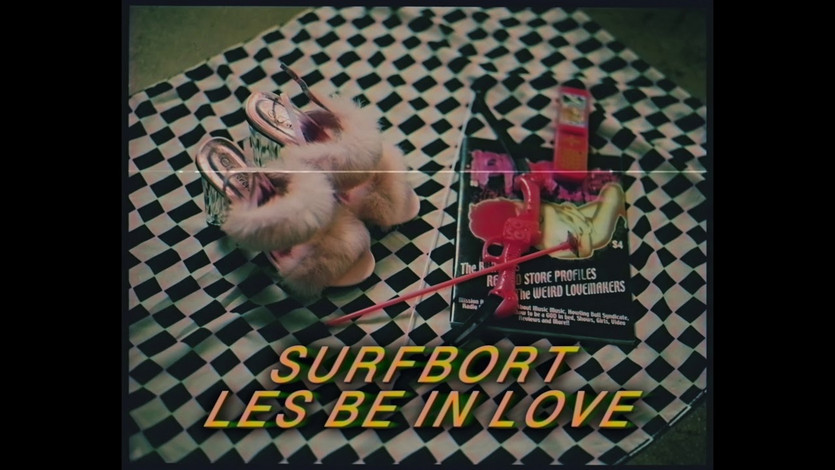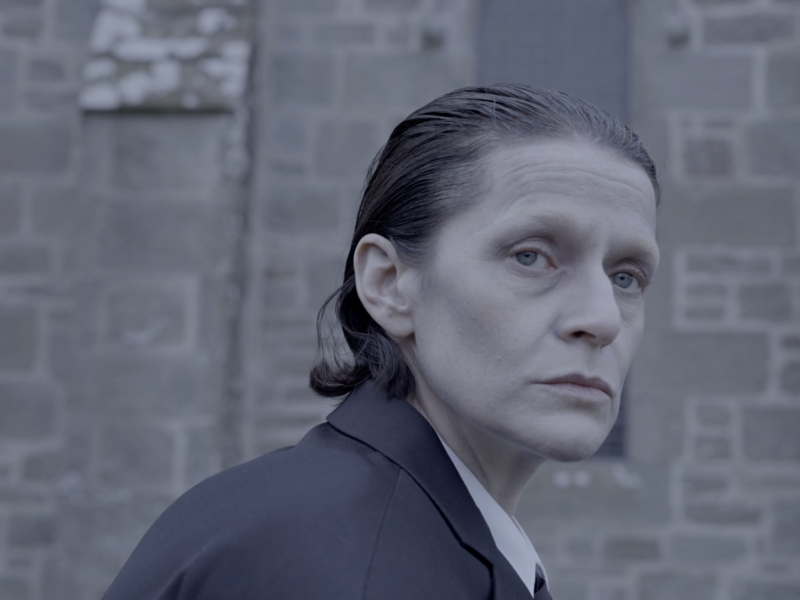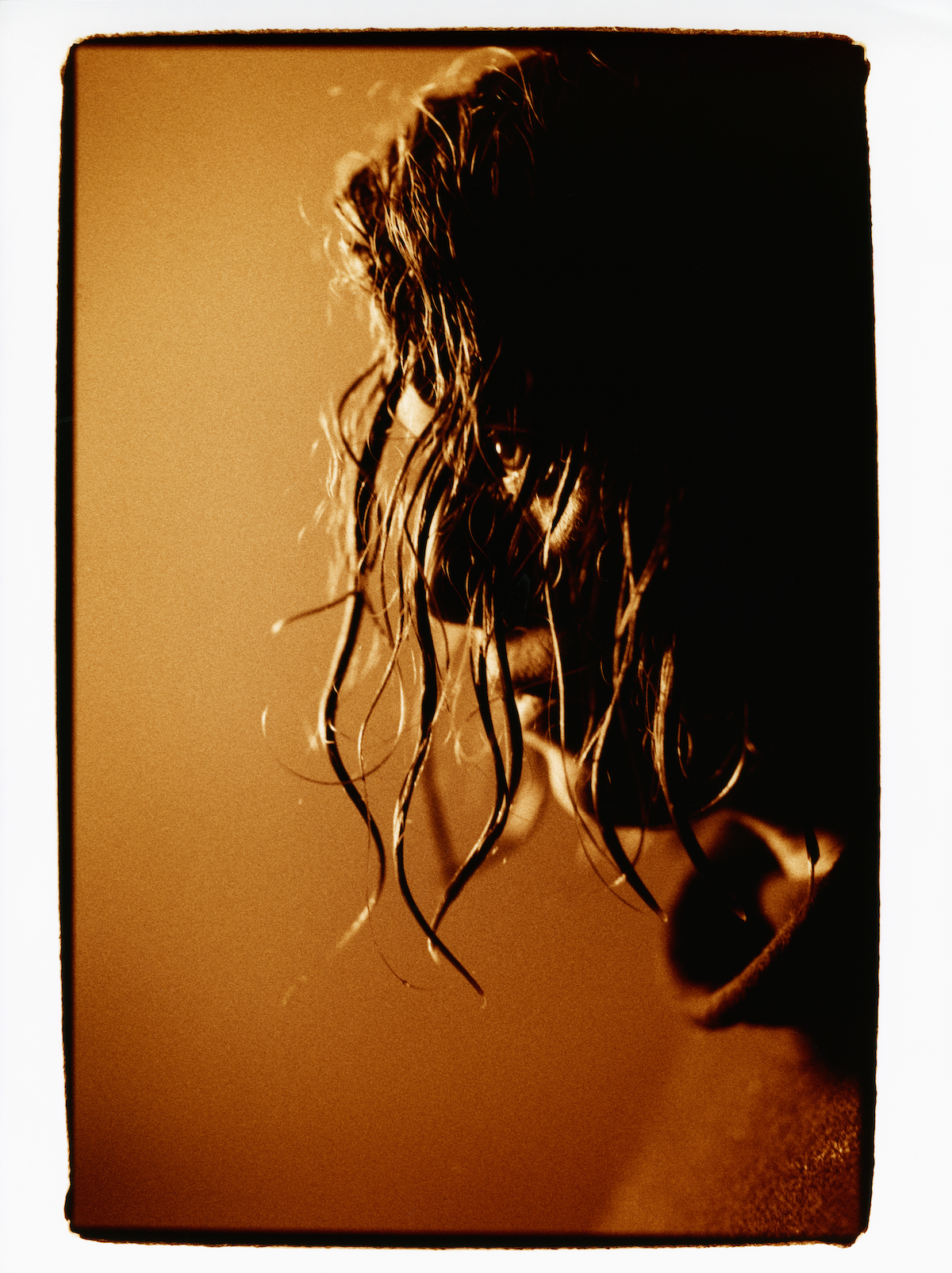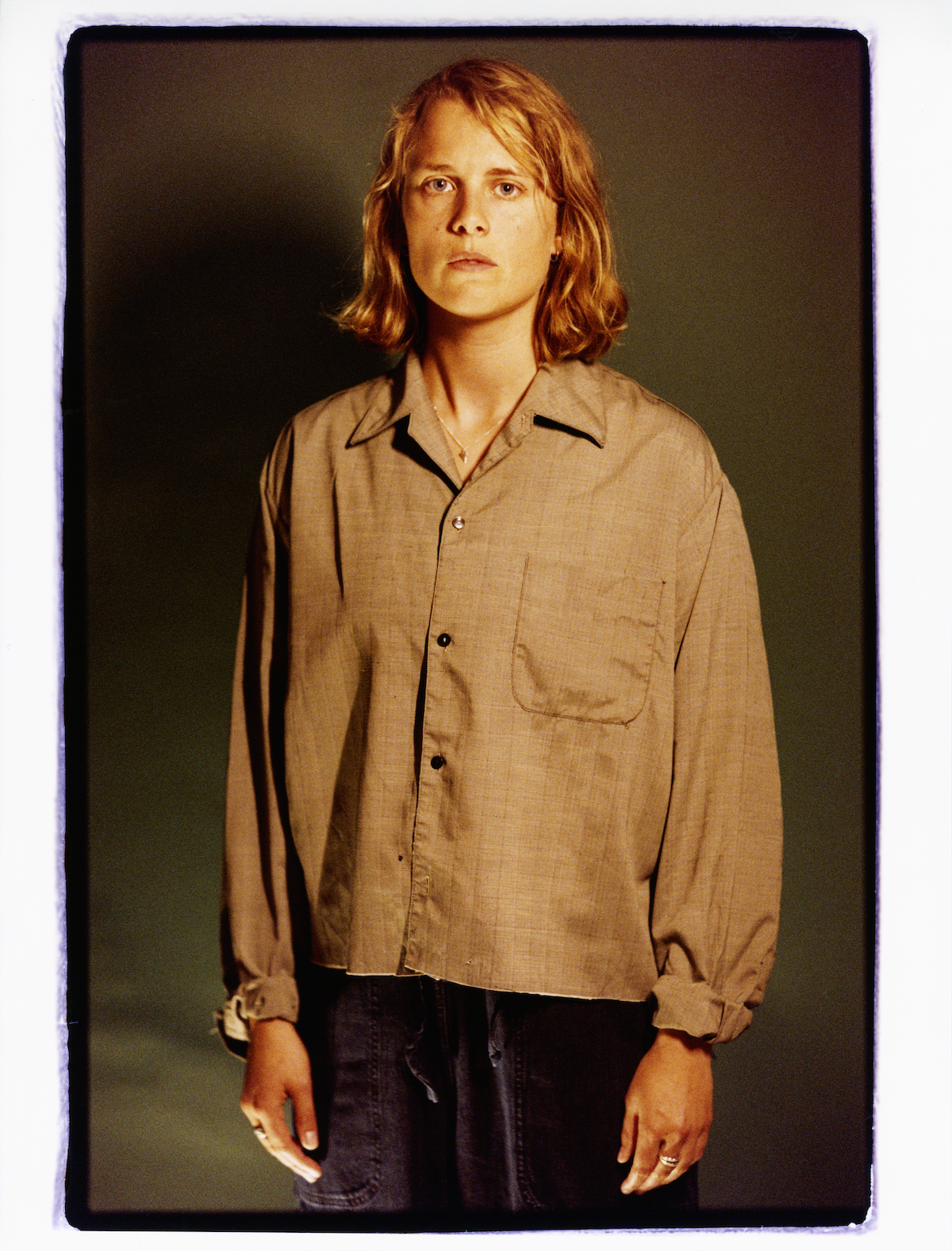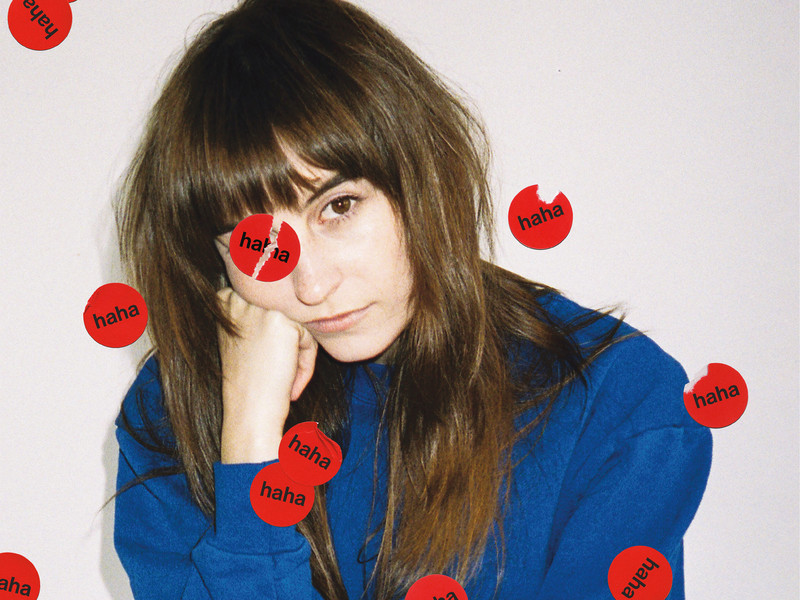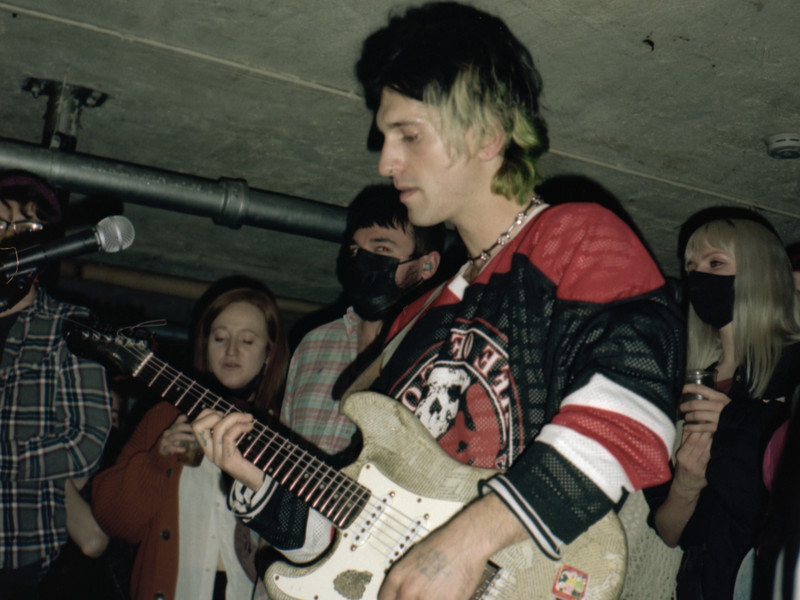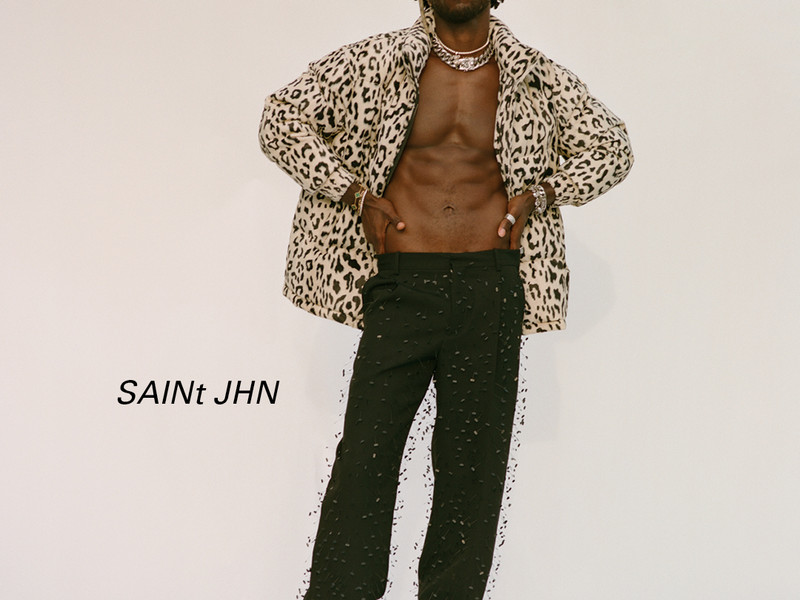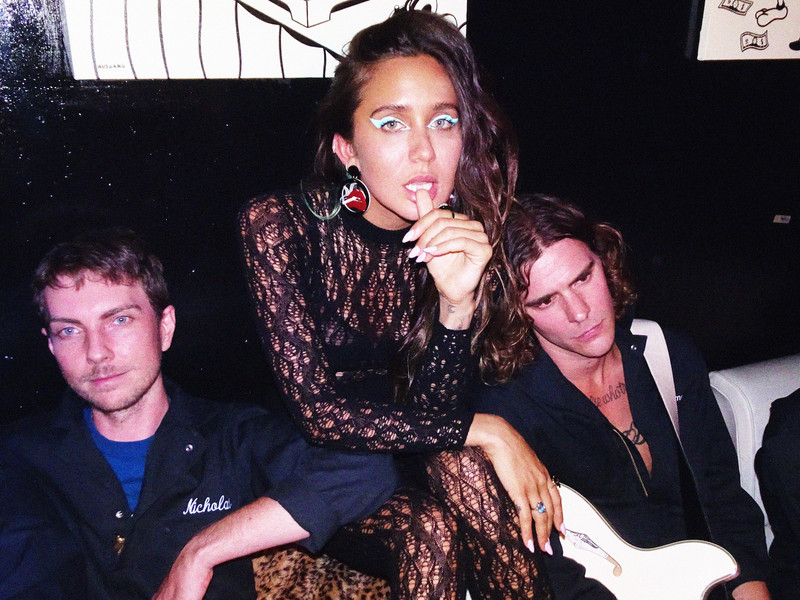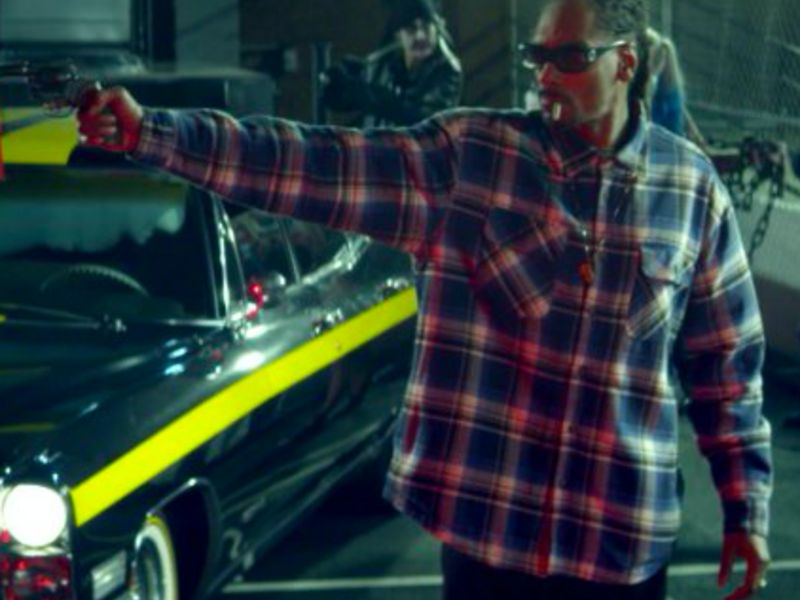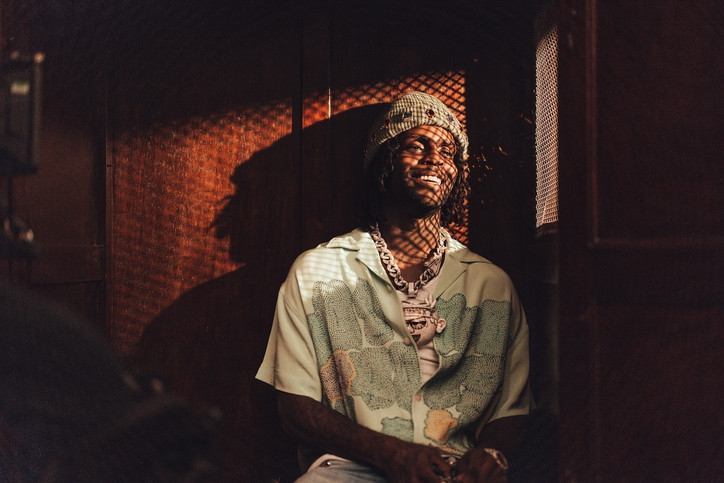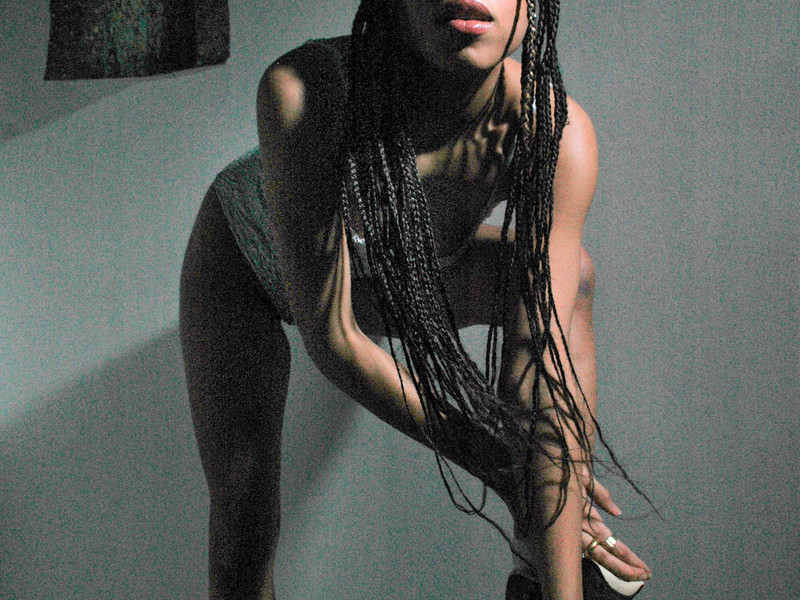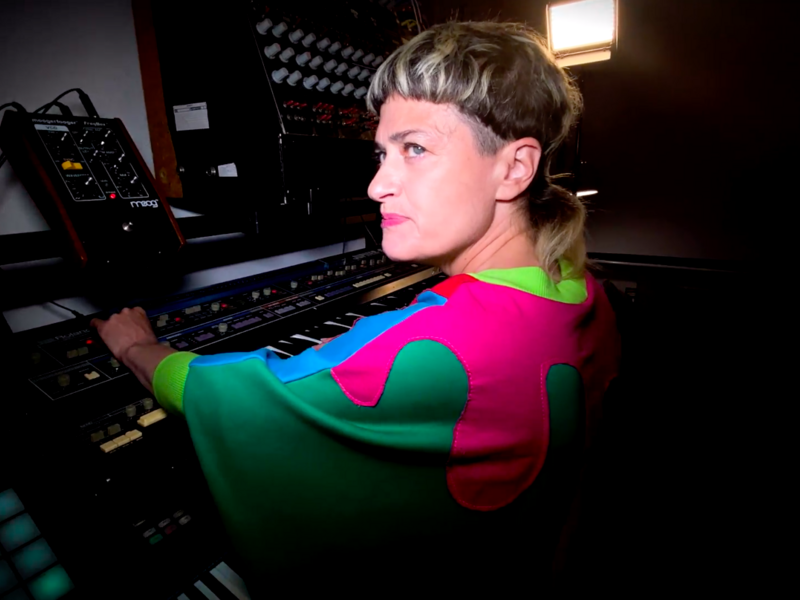Tell me about your latest record, Big Sigh.
I took a small break from songwriting when the pandemic first hit and then found it really hard to get back into writing and being creative. It's like any muscle that you've got to keep flexing it or it's going to get unfit. Big Sigh took ages to write, and it took a long time to record in the studio; every aspect of it felt quite laborious. There wasn't the sense that it was like the easy, fun, kind of speedy records that I've made previously, but it meant that I really just focused on the songs. I wasn't thinking about what it was going to be or what I was trying to say, I was just spending a lot of time and effort trying to write the best songs that I possibly could. It was a long process, but I think it's set apart against the rest of my records because of that.
There has been a noted preoccupation with bodily expulsions, like blood and sick, in your work. These are all things that are often out of our control and can make us anxious. With your music, and particularly with this new album, do you find a safe space to work through these fears?
I struggle with the idea of loss of control and my body failing me; things like that take up a lot of space in my mind and are the root cause of so much of my anxiety. I think that to write music about these themes externalizes them and means that I have something tangible in front of me, so I can observe my fear rather than feel it. It's kind of like pulling a thread out and then being able to look at it. I also love the way that I can take something that feels very pointless and destructive, and by using that as an inspiration, write music. Then I've actually turned it into something that's useful and something that's beautiful or something that people sing along to or that is a shared experience. To take that kind of negative energy and spin it in that way helps me deal with the fact that it even exists, because it finally serves a positive purpose in my life. The best way to analyze difficult feelings is to go back into those emotions, create something out of it, and then look at it and see what it is.
This is the first record on which you've led production and played every instrument, and you are also co-directing your own music videos. How did you find yourself stepping into all of these different roles?
With the music, it's one of those things where it got to the point where I'm confident enough to do more because I've been doing this for a while now. It's about calling a spade a spade really, because I have had quite a big hand in production across my career. When you first start out, you don't realize the parameters of the word producer and what that really entails. Now all those other parts of putting an album together are things I've been playing with a lot. I've always come into the studio with my songs already very heavily fleshed out, with all the arrangements done, so with this one, it was a case of being like, “Okay, let's just cop to it now.” I was stepping into that role knowingly, but it didn't feel like a big step up because I felt like I'd already been doing it. With the videos, that was born out of frustration. A lot of the time when you work with directors, they forget that it's just a visual accompaniment to music, not necessarily a miniature film. You don't have to have a narrative; it can be abstract. Again, I didn't realize that the role of a director is actually to come up with the idea, and I have done that consistently throughout my career. I would come up with these ideas and then hand it over to a director who would change it. When you have a very clear image in your brain, it's hard when the finished product doesn't match that, especially because music videos are expensive and they're a lot of hard work to make.
The video for the track “Slime” is particularly great. It portrays you and your co-star Lea Anderson battling it out in a forest, and shows as your relationship gradually evolves into something more tender and intimate. In a similar vein to my previous question, do you feel that the space of a song, or in this case, the space of a music video, is ideal for exploring human relationships and working out some of their more gnarly aspects?
Definitely. I love writing about relationships because it's like a mirror. If you're introspective and writing about your own emotions, what better way to be able to analyze that further than see how you're reflected back in an intimate relationship with someone? They're always different, and they take you to different places, and ultimately you learn a lot about yourself. I think that's why I always come back to relationships and heartache and lust. “Slime” is very much about that initial lusty phase where there's also an element of danger. There's a lot of dangerous things about lust. It's a very intoxicating emotion, and there's the danger when that drops off, like, is that commitment something you really want to throw yourself into? Also, when you're a lesbian, there’s always people who get pissed off about situations, because everyone knows everyone. So with the video, I really wanted to capture that feeling of tension and how easily that can flip from something that's violent and dangerous into something that is tender and sexual and loving.
